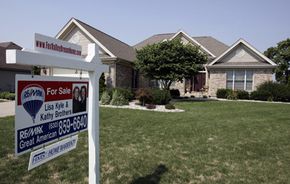You may have seen advertisements staring celebrities James Garner or Robert Wagner that go something like this… "If you're 62 years of age or older and own your own home…" They're endorsing reverse mortgage loans for older Americans. But is it a good idea, or are they just trying to make a buck?
As you might expect, the American Association of Retired Persons (AARP) is a somewhat more objective source of information. According to the AARP, a reverse mortgage is a loan you borrow against your home that you don't have to pay back for as long as you live there.
Advertisement
For many older Americans, the opportunity to convert the equity in their homes into cash, with no repayment required until they die or sell the home, sounds appealing. Many seniors are "house-rich, cash-poor" -- they own their homes but have minimal income. They may face rising and often unexpected medical expenses, home repairs, or the need to supplement their Social Security benefits. A reverse mortgage allows them access to ready, tax-free cash without selling their homes, and without the burden of monthly payments. The number of reverse mortgages has recently seen a phenomenal increase from 18,000 in 2003 to more than 107,000 in 2007 [source: U.S. Department of Housing and Urban Development].
Before reverse mortgages became available in the late 1980s, retired homeowners who needed cash had few options. They could sell and perhaps buy something smaller, move in with family members or move into a rental property. The other option would be to borrow against the equity in their home, but they would then face monthly loan repayments.
Does the reverse mortgage sound too good to be true? In this article, we'll explore the different types of reverse mortgages available, who's eligible and how much cash a homeowner can expect. We'll also take a look at what everyone should consider before cashing out their home equity.
Advertisement


